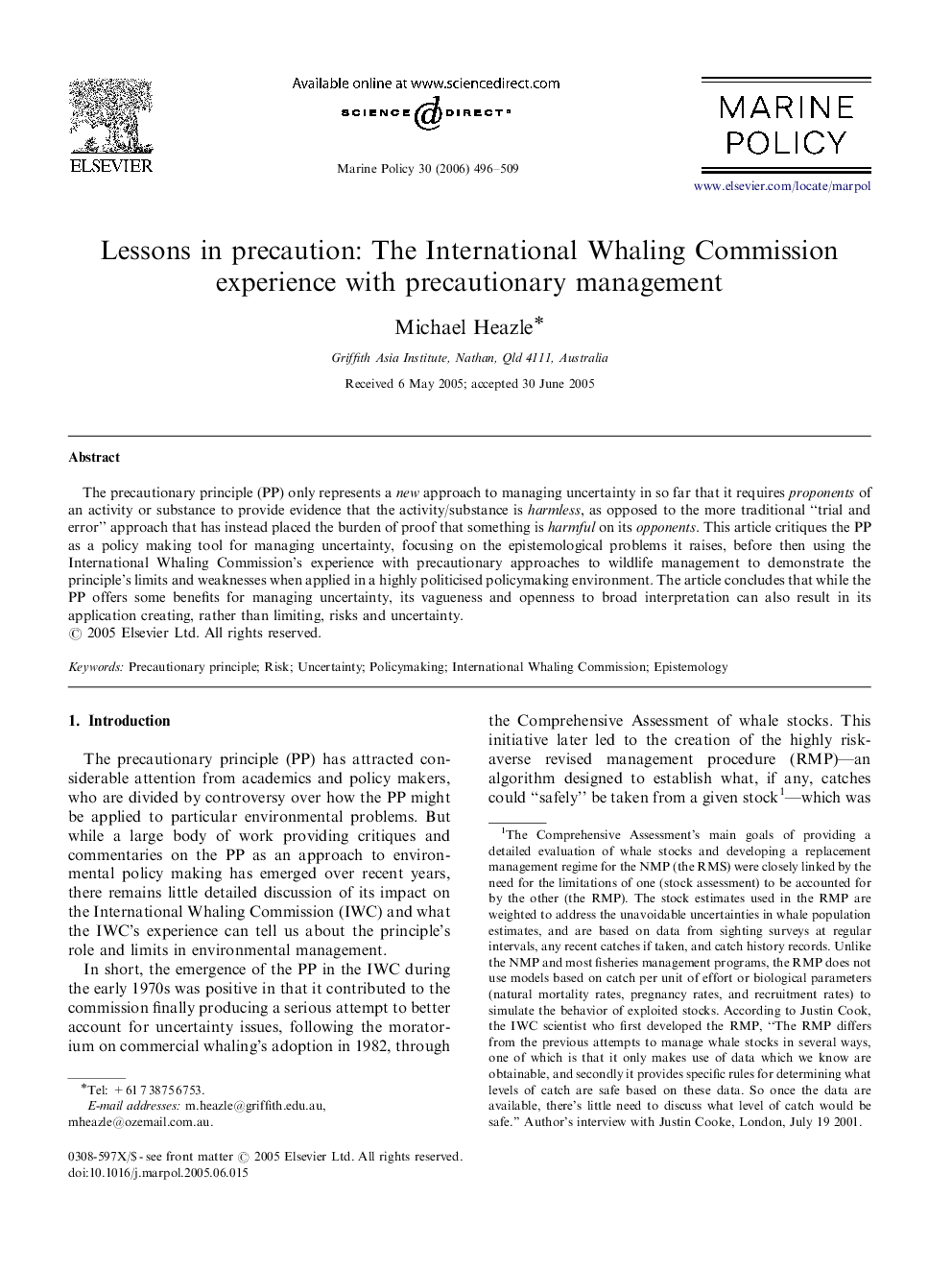| کد مقاله | کد نشریه | سال انتشار | مقاله انگلیسی | نسخه تمام متن |
|---|---|---|---|---|
| 1060912 | 947647 | 2006 | 14 صفحه PDF | دانلود رایگان |

The precautionary principle (PP) only represents a new approach to managing uncertainty in so far that it requires proponents of an activity or substance to provide evidence that the activity/substance is harmless, as opposed to the more traditional “trial and error” approach that has instead placed the burden of proof that something is harmful on its opponents. This article critiques the PP as a policy making tool for managing uncertainty, focusing on the epistemological problems it raises, before then using the International Whaling Commission's experience with precautionary approaches to wildlife management to demonstrate the principle's limits and weaknesses when applied in a highly politicised policymaking environment. The article concludes that while the PP offers some benefits for managing uncertainty, its vagueness and openness to broad interpretation can also result in its application creating, rather than limiting, risks and uncertainty.
Journal: Marine Policy - Volume 30, Issue 5, September 2006, Pages 496–509